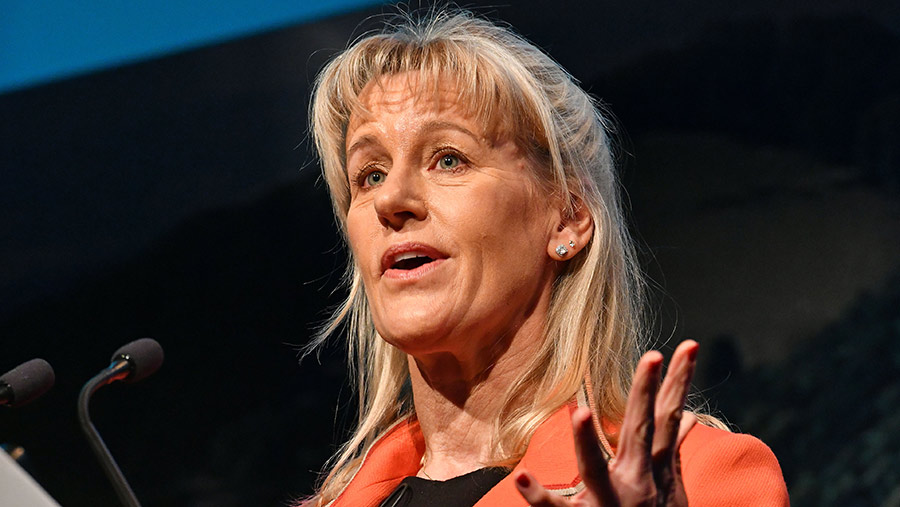No scientific rigour in Defra’s ELM scheme, says Batters
 Minette Batters © NFU
Minette Batters © NFU Farm leader Minette Batters has criticised Defra’s Environmental Land Management scheme for farmers in England, arguing that it is not supported by science.
The NFU president delivered her damning verdict on Environmental Land Management (ELM) at Reading University on Tuesday 7 March during a speech on balancing net zero with food security.
“I guess my big frustration with the ELM scheme is that it has no scientific rigour at all,” she told delegates.
“The co-design has been very much about selecting of farmers; some good farmers, some moderate farmers and some probably not very good farmers at all.”
See also: Sustainable Farming Incentive: Two growers weigh up the pros and cons
Mrs Batters said no one knew the identity of the farmers selected to build the ELM pilots and their outcomes. “Is that really a credible way to build a new policy?” she asked.
She questioned how the UK government could drive a new policy without scientific rigour.
“Why isn’t the ELM scheme effectively having the tyres kicked on the scientific rigour that should be absolutely underpinning everything that is done?” she asked.
Mrs Batters suggested the UK government should have involved the country’s best scientists in the design of ELM, including our world-leading, science-based agricultural research institutes, such as Rothamsted Research and Niab.
She said Defra should have developed a foundation for farmers under the Sustainable Farming Incentive (SFI), the first tier of ELM, which is based on a metric for soil health and carbon sequestration targets they should aspire to achieve – and define which carbon calculators they should use.
Mrs Batters warned there was a “real danger” on the journey towards net zero that if the right farming policies are not put in place, the UK “is going to get left behind”.
And if the policy did not deliver positive outcomes, the Treasury may in future seek to divert funding to the NHS or education.
Self-sufficiency target
On food production, Mrs Batters said prime minister Rishi Sunak made some important commitments in his leadership campaign, including the creation of a new statutory target on food self-sufficiency and mandatory reporting of that figure.
Mrs Batters said it was critical that Mr Sunak delivered on his promises for farming and included the self-sufficiency figure and the annual reporting process in the government’s Land Use Framework, which is making its way through parliament.
“We have got to get this right, and getting that whole food production built into this thinking is fundamental on the journey to net zero as well,” she added.
